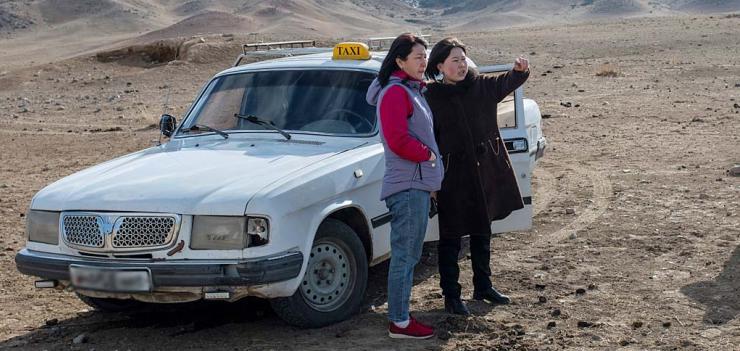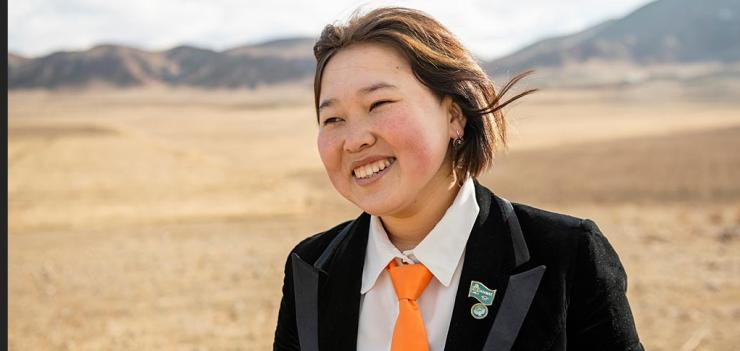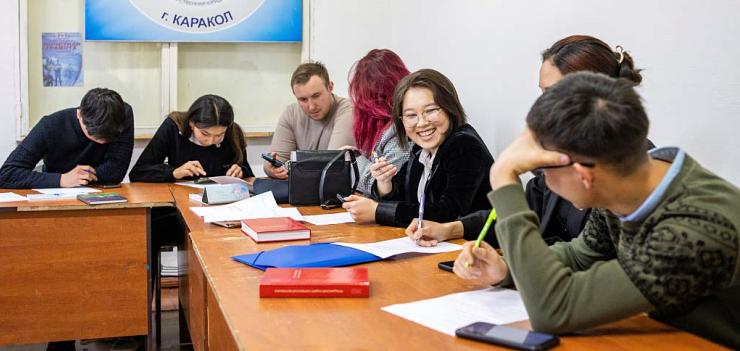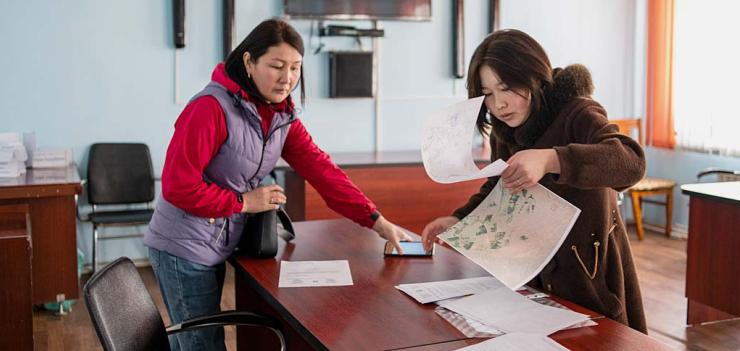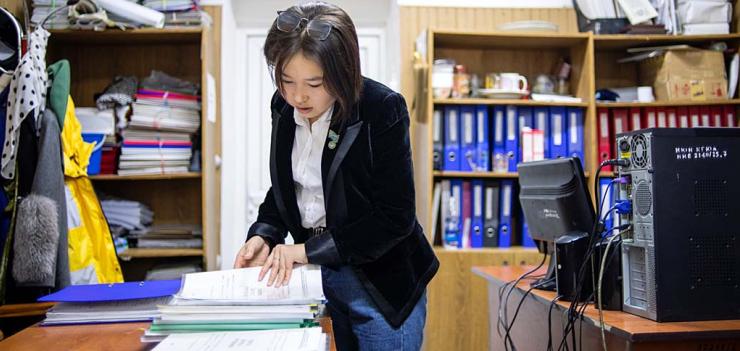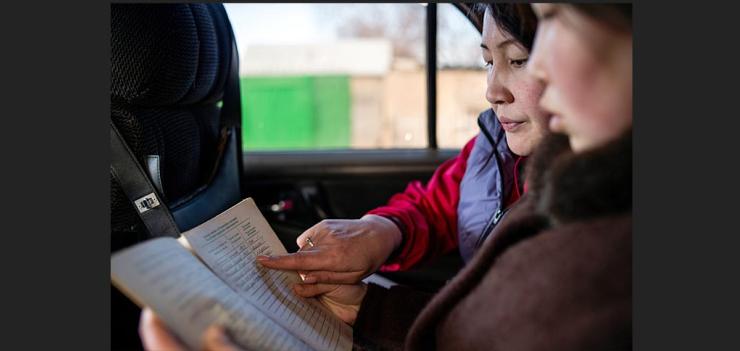"I am the only girl in my family. Since childhood, I have been surrounded by lawyers. Therefore, when it came time to choose a profession, I didn't have much doubt. My parents supported me and wanted me to build a good career in my profession. I knew from the first grade that I would work in an office, with papers, with people.” - Elina Tynybekova
Elina Tynybekova is a student of the Issyk-Kul Law Institute, and one of four students selected from Karakol to participate in the Ukuktuk Region Project. Supported by EWMI’s USAID Ukuk Bulagy Project and implemented by the Association of Law Clinics of the Kyrgyz Republic, the Ukuktuk Region Project aims to raise legal awareness among residents of the regions. Elina and her four colleagues traveled from Karakol to the Ton district for an internship within the framework of the project, and provided services to justice seekers with the support of local stakeholders.
The local government in Ton provided significant support for the project, including outreach work to ensure residents were aware of the opportunity to engage with these law interns. Before their arrival, the local government opened a messenger group to inform residents about the arrival of project participants and their work schedule. Participants were based in the government’s aiyl okmotu, in an office specially allocated for legal advice. After arriving, project participants learned that there is one lawyer providing services in the Ton district. A queue of locals quickly lined up for the students.
During two months of work in Bokonbayevo, the students managed to help in 14 appeals from local residents and employees of the aiyl okmotu. The main issues were related to the resolution of land disputes, divorce proceedings, easement, and the division of property. “Basically, all the problems that were addressed to us concerned land plots: documents were not issued on time, [parties] misunderstood each other, or someone dies but they did not inherit, queues for land,” notes Elina. Project participants also noted high unmet needs related to employment contracts. “Our population practically does not read them, signs them, then it turns out that they were fired, but they cannot make claims.” Elina entered the internship well-prepared to provide these services, after training through her university’s law clinic on how to provide legal advice to the population, work with clients, conduct interviews, and be psychologically prepared for situations.
Even though Elina’s internship has ended and the students have returned to Karakol, the community they served continues to reach out for support with their legal challenges. "Although the work here is over, some clients continue to keep in touch with us, by phone, and sometimes even come to Karakol.” Elina even noted an uptick in interest in students’ services from outside of their original constituency. “After our internship, we received more calls. The grapevine worked. People from Karakol call us for advice after learning about our successes in Bokonbayevo," Elina shares with inspiration.
Elina continues to be in touch with those who turned to her for help. Now, the highest priority case for her is to help an 81–year-old woman and resident of Bokonbayevo. She worked for many years as a shepherd at the collective farm, for which she was allocated a shed. But the allocation resolution did not specify the area, and only specified "a shed and a temporary shelter." After selling her house and shed without sufficient documentation, the woman is now facing a land dispute.
As with many legal problems the students encountered, justice in this case has been impeded by a lack of comprehensive documentation, limitations in the resident’s legal knowledge, and long timelines to resolve disputes. Elina assisted the woman in filing an appeal on her decision, which resulted in the creation of a commission that included aiyl okmotu, the cadastre and the cooperative itself. Despite quarrels between the parties and hurdles in communications, Elina remains committed to finding a resolution for her client. “[Her daughter] calls me every day saying ‘Elina, let's finish this case somehow.’ Grandma is tired and she asks us to finish it as soon as possible, since this case dragged on for 9 years before us.”
Elina explains her perseverance in work and study by saying that she always knew what she would do from childhood. Her decision to become a lawyer was unconditionally supported by her parents, which is not always the case for young women in the Kyrgyz Republic. Elina speaks openly about the difficulties of the law profession for women in Kyrgyzstan:
"It is more difficult for girls to be a lawyer. My parents never pressured me, didn’t talk about marriage, etc. Although I look at my peers and understand that my parents are the exception rather than the norm. Many take diplomas and don’t work, girls often study to get married. They answer: "And what will I say to my husband and children?"
Now Elina plans to enroll in a master's degree, and in a few years earn her lawyer's license. She dreams of living in a country where the law will be the main guarantor of the freedoms and rights of every resident, remarking "This must be put in order. Lawyers are in demand, but we have very few professionals. Requests from the public don’t end, as well as law issues. I think that law is my vocation."

